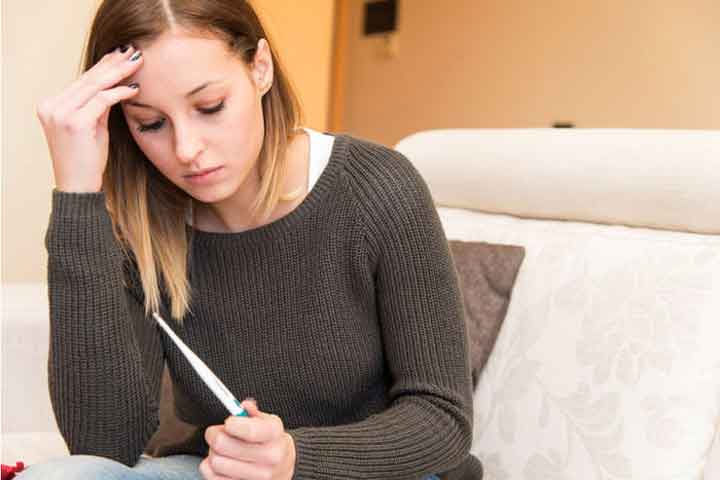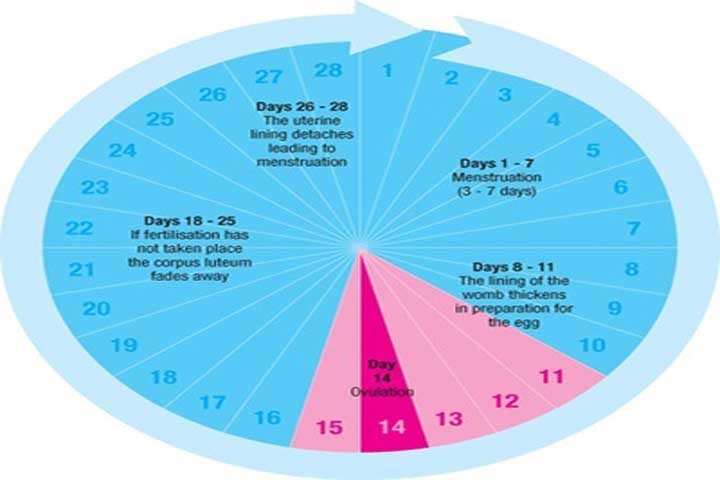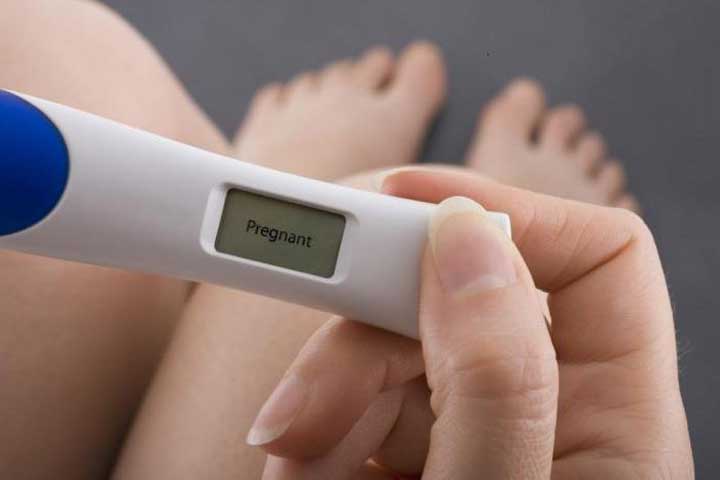
Important: This article is for informational purposes only. Please read our full disclaimer for more details.
‘Can you or can you not?’ This question has been plaguing women since a very long time. Wondering what are talking about? We are talking about the much debated question – can you or can you not get pregnant during your periods! With a lot of women trying to get pregnant and a lot of them trying to avoid getting pregnant; this perennial question has always taken the top place.
We have set out on a mission to find out and let you ladies know whether this whole thing is a myth or a possibility. So after a lot of research and study, we have come to the conclusion that yes you can get pregnant and no you cannot get pregnant while on your periods. Confused? Yup, that was our reaction as well!
In this post, we are going to clear up this confusion for you. Let me first explain why a women cannot get pregnant during her periods.
Every month the process of ovulation happens in our body. Ovulation basically means that an egg is released from your ovaries, enters the fallopian tube and is ready t be fertilized by a sperm. This process happens about 12-16 days prior to your next period. You will essentially have a 28-day cycle where the first day of your periods is considered as the first day of your cycle. So you would ovulation between the 12th and 16th day of your cycle.
Ok, so the egg has a shelf life of just 24 hours in your fallopian tube and as per the ovulation calendar you are already done and dusted with your periods. This is why a lot of studies conclude that you
CANNOT get pregnant. Makes sense right?
Read on to know there is a possibility for you to become pregnant during your periods.
Like I explained earlier, typically women have a 28-day cycle, however, there are women who have a shorter menstrual cycle of say about 22-days. So, let’s do the math here. You have a 22-day cycle, your period lasts for seven days and you will ovulate after three days.Now assuming that you had intercourse on your last day, there is every possibility that you will get pregnant.
How? Well, a sperm has a shelf life of about three to five days and it can easily fertilize your egg once it is released into the fallopian tube. This is why the statement – ‘yes you can get pregnant on your periods’ stands true.
These are the reasons why this perennial question has such a confusing answer to it. If you do not want to get pregnant, then you can try and follow some of the below options:
- Maintain an ovulation calendar so that you would know when your ovary is releasing the egg into your fallopian tube.
- Use a condom and do not engage in sex without a condom. This will not only protect you from unwanted pregnancy but also from various sexually transmitted diseases.
- If you are on pills, ensure that you take them daily and on time. Irregularity can lower the pill’s effectiveness.
- Pulling out the penis before Discharge may work for some of you, but remember it is not a fool proof method. Even a tiny drop of sperm can lead to pregnancy.
- Even though you are using a condom, leaving the penis inside your female genitalia for a long time after Discharge is not a good idea.
For ladies who are looking out for ways to become pregnant, some of the below options can come in handy:
- You need to maintain an ovulation calendar too so that you have a clear idea of when you might be ovulating. Ideally having intercourse one or two days prior to your ovulation or on the day you ovulate has a higher chance of you becoming pregnant.
- Your body weight also plays an important role. Being overweight or under-weight can decrease your chances of pregnancy as proved by various studies. According to the American Society for Reproductive Medicine, ‘Having too much body fat produces excess estrogen, which can interfere with ovulation. Losing 5 to 10 percent of body weight before a woman starts trying to get pregnant could improve her fertility.’
- If you are addicted to working out ladies, then we suggest you start cutting back on it. This is because over-exercising can result in menstrual disturbances which in turn can affect your ovulation.
- Age like time, waits for none. As you age there would be a decrease in your fertility and it would affect your egg’s quality and quantity. This decline starts once you hit your 30’s and increases in your late 30’s and early 40’s.
- Smoking and drinking is another thing that you would have to give up on if you are trying to conceive.
There are times when you might experience breakthrough bleeding like spotting of blood between your periods. People often end up mistaking it to be their regular period. So there is a chance that you might have some bleeding right when you are ovulating. So if you do conceive during this time, there is a high possibility that you might think that you became pregnant during your periods.
We hope that this post has cleared up your confusion regarding pregnancy during periods. Everything boils down to two points – the duration of your menstrual cycle and the day you have an intercourse. These are the two points which will determine whether you got pregnant during your periods or not.
You Might Also Like:
- 28 Facts About Menstruation
- Do Tampons Expire? What You Need to Know
- Period Power: The Best Foods to Eat (and Avoid) for a Better Cycle
- Top 5 Yoga Poses to Help Ease Menstrual Cramps
- Ease the Ache: 6 Yoga Poses to Alleviate Period Cramps Naturally
- Yoga for PCOS – 6 Effective Poses to Treat PCOS
- Why Are Period Poops So Bad?
- 6 Best Yoga Poses to Relieve Menopause Symptoms
- How to Make Your Period End Faster – Tips and Remedies
- Can I Take a Bath on My Period?
- 10 Best Period Subscription Boxes
- How to Stop Blood Clots During Your Periods?
- Can We Eat Chocolate During Periods Cramps?
- How to Delay Periods Naturally at Home?
- How to Tell the Difference Between Blood Clot and Miscarriage?
- Can You Get a Pap Smear on Your Period?
- Epsom Salt Bath During Pregnancy – Benefits and How to Do?
- Is It Safe to Drink Chamomile Tea During Early Pregnancy?
- How Does Folic Acid Help for Pregnancy?


















